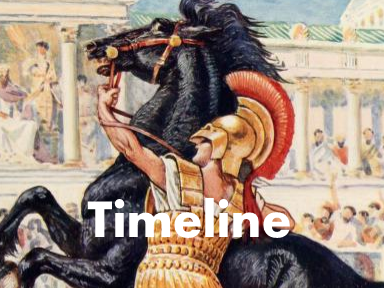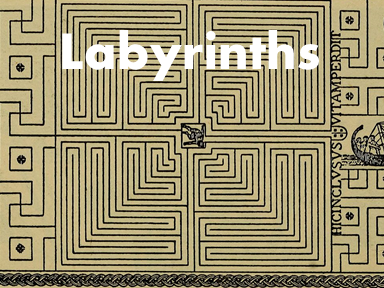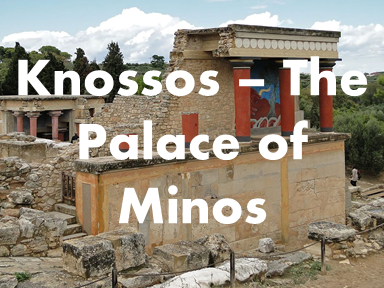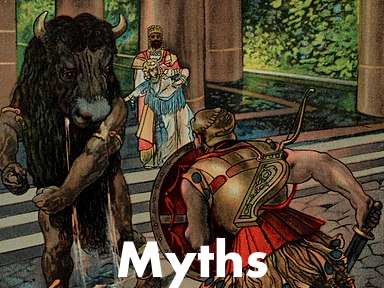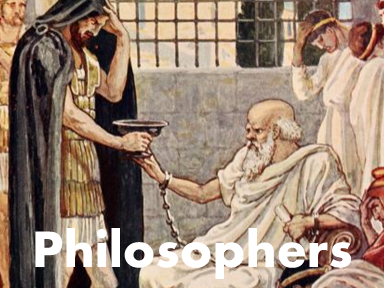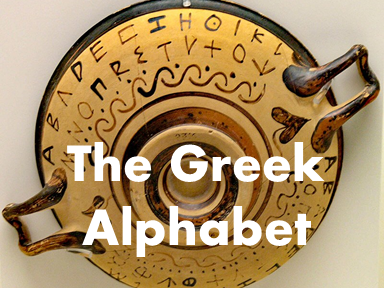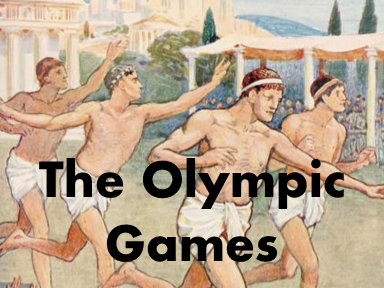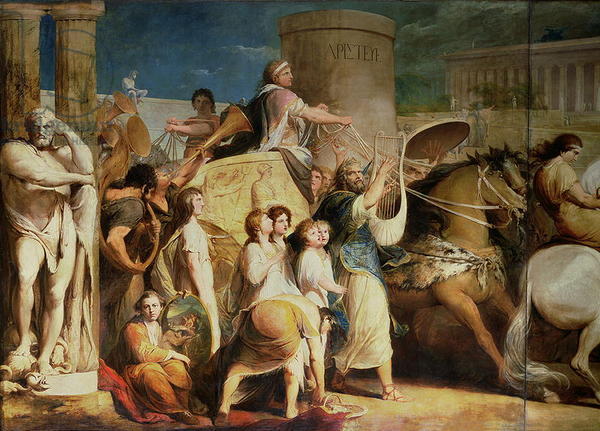
Ancient Greece The Olympic Games
The first Olympic Games were held in Olympia around 775 BC. No one knows why the games started. Here are a few myths explaining why the first games were held:
- One legend says the games were started when Hercules brought a sacred olive tree to Olympia.
- Another myth says the games started when Pelops established a festival after defeating King Oenomaus in a chariot race.
- One myth says the games started when a cook named Koroibos, from the nearby city of Elis, won the stadion race, a 600 foot long race.
- Others say the Olympic Games were first held as part of a religious festival honoring Zeus.
The Olympic Games were open to all city-states. Anyone who was a free man could participate. Men as far away as Spain and Turkey also came to the games. The games had few rules. Women were forbidden to attend the games.
The city-states would stop fighting each other to go to the games. The Olympic Games lasted for one week. The first day of the event ceremonies and sacrifices took place. On the closing day a victory banquet for the winning athletes and a procession was held.
The Panhellenic Games were a collection of four separate sports festivals in Ancient Greece.
- Olympia - Zeus honored
- Nemean Gamea at Nemea (in southern Greece) - Zeus honored
- Isthmian Games at Isthmia in Corinth - Poseidon honored
- Pythian Games at Delphi - Apollo honored
In the fifth century BC, there were eight events for adults and three for children. All events were competed as individuals and not as a member of a city-state. If anyone was caught cheating he was heavily fined. The fines went to building statues to the god Zeus. A total of sixteen statues were built.
The champions were rewarded with simple crowns made of leaves.
- Olympia - crown of olive leaves
- Nemea - crown of parsley
- Isthmia - crown of pine
- Delphi - crown of laurel
Running
(3 foot races: stadion, diaulos, and dolichos) - one length - adults and children two lengths - adults
The shortest race in the ancient Olympics was about 200 yards. The Greeks called this distance the stade. The runners began in a standing position. They raced in straight lines to the opposite end of the stadium. The finish line was marked by upright posts in the ground.
Hoplite
This event was a foot race with the contestants wearing full armor that weighed about 50 pounds. Later the racers wore only a helmet and carried a shield.
Pugme (Boxing)
adults and children
Boxing had no rounds. The contestants boxed until they were either knocked out or admitted defeat. There were no weight classes. The boxers wore pieces of leather tied around their hands and wrists leaving their fingers free. These were called himantes.
Hoplite
This event was a foot race with the contestants wearing full armor that weighed about 50 pounds. Later the racers wore only a helmet and carried a shield.
Pale (Wrestling)
adults and children
Another original event of the ancient games was wrestling. Two contestants began in a standing position and wrestled until one gave up. Biting was not allowed, but it was acceptable to break your opponent's fingers.
Hoplite
This event was a foot race with the contestants wearing full armor that weighed about 50 pounds. Later the racers wore only a helmet and carried a shield.
Pankration
adults
Pankration was a combination of boxing and wrestling. In this sport throwing your opponent to the ground gave a wrestler one point. The match was over when one wrestler scored three points. Greeks did not have weight classes. The only rules were that the contestants could not bite or puncture the eyes, nose, or mouth with fingernails.
Pentathlon
included the long jump, discus and javelin throwing, running, and wrestling - adults
Long Jump
In the ancient games the runway for the long jump was very short. A jump was disqualified if you did not land entirely and only on your feet. The Greeks held small weights in their hands called halteres. These weights helped the contestants to jump farther.
The Discus
Ancient Olympians used a discus made of metal or stone. It weighed from 5 to 8 pounds. Many contestants engraved messages on their discus. The contestants did not spin like they do in today's competition. The thrower faced one direction. He swung the discus back and forth and then took one step forward to throw.
Javelin
To throw the javelin two fingers went through a leather strip wrapped around the javelin's shaft. This helped the contestant rotate the javelin as it was being released.
Horse Racing
adults
The horse racing took place in a large arena called the hippodrome. The riders usually raced 1200 meters.
Four-horse Chariot Races
adults
Only the wealthy could afford to compete in this event which required maintaining the chariot. The racers competed in various courses going by a number of obstacles.
The Ancient Olympics were held from 776 B. C. to 393 A. D. They were stopped by Theodosius I. After this no Olympic events were held for 1503 years until the Baron Pierre de Coubertin suggested they be started up again in 1896. Thirty-four countries became involved with the idea and convinced Baron de Coubertin to hold the event in Athens, Greece.


